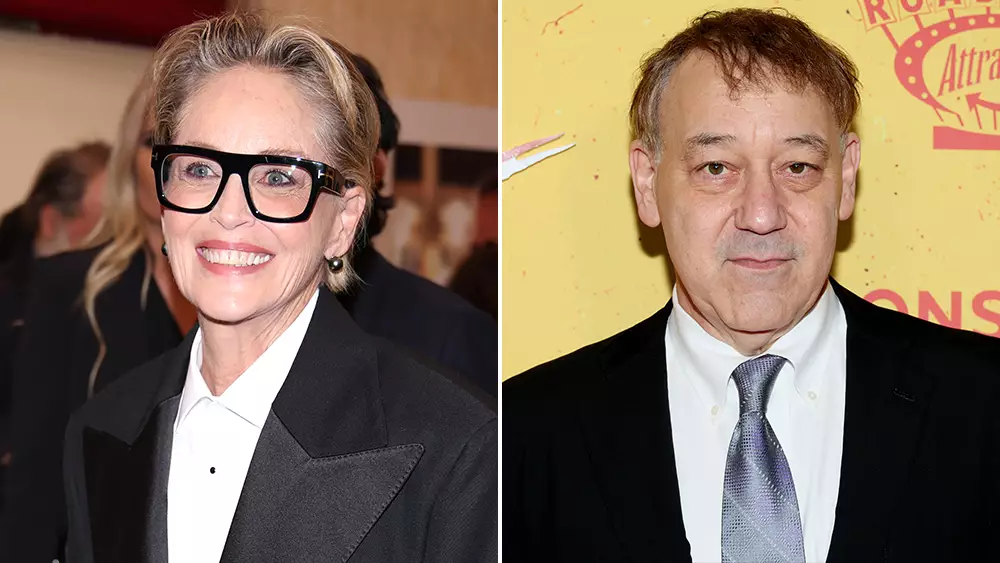During a recent session at the Torino Film Festival, Sharon Stone offered an insightful overview of her experiences in the film industry, particularly her reflections on the challenges faced by women in Hollywood. Notably, she discussed her work in the 1995 revisionist Western film, “The Quick and the Dead,” where she expressed both pride in her contributions and disappointment in her collaborations, specifically with director Sam Raimi. Stone’s candid remarks sparked a broader conversation about loyalty, loyalty in the industry, and the barriers that women face in pursuing their creative ambitions.
Stone’s time working on “The Quick and the Dead” showcased her prowess in navigating the competitive landscape of Hollywood. She highlighted the film’s casting decisions, including bringing in Russell Crowe and Leonardo DiCaprio, both of whom were on the verge of stardom at the time. However, her enthusiasm was tempered by her comments about Raimi’s lack of personal connection and gratitude, which she contrasted with her fruitful collaboration with Martin Scorsese. The implicit comparison raises essential questions about the nature of professional relationships in the film industry and the significance of loyalty and recognition.
To be left feeling unacknowledged by a director after contributing meaningfully to their project can be disheartening, particularly for women trying to assert their agency in a male-dominated field. In Stone’s case, she expressed clear frustration over Raimi’s disregard for their professional rapport, which undermined the creative partnership that many aspire to build in Hollywood.
Despite its initial failure at the box office, “The Quick and the Dead” has since gained a cult following, illustrating how initial reactions do not always dictate a film’s long-term legacy. Stone’s performance as a vengeful gunslinger represents a strong female lead that was somewhat ahead of its time, juxtaposing traditional Western tropes with a narrative focused on a woman’s quest for justice. The film’s eventual reappraisal underscores how audiences can evolve to appreciate narratives that were once overlooked or dismissed.
What makes Stone’s retrospective comments particularly engaging is the juxtaposition between her triumphs and the struggles she faced merely because of her gender. The film may not have achieved commercial success initially, but its legacy has been reclaimed in contemporary discussions about female representation in cinema.
Stone’s lament about the barriers she faced as a female director during the ’90s sheds light on the pervasive sexism in Hollywood that still resonates today. She recounted her experiences pitching projects to studios, where despite garnering praise for her ideas, she was ultimately met with rejection. This highlights an uncomfortable truth: even skilled and talented women often find themselves sidelined, their voices drowned out in a patriarchal industry that continues to prioritize male narratives and leadership.
Her reflections serve as a testimony to the systemic issues that thwart women’s creative ambitions. Stone’s frustration with studio executives exemplifies a broader pattern of dismissiveness toward female filmmakers, a reality that many aspiring female directors continue to confront. These stories underscore the importance of advocating for representation and equitable opportunities in the entertainment sector.
Despite the obstacles she faced, Stone’s story is not only one of disappointment but also of resilience. While she may have stepped back from directing due to the industry’s resistance, she turned her focus towards producing and casting, proving her worth in a different yet equally vital capacity. Her ability to adapt exemplifies the tenacity required to navigate an industry resistant to change.
This resilience mirrors the broader narrative of many women in Hollywood who, despite facing overwhelming challenges, continue to contribute creatively and advocate for change behind the scenes. By sharing her experiences, Stone not only sheds light on her personal journey but also serves as a voice for many others who remain committed to transforming the landscape of filmmaking.
Sharon Stone’s reflections at the Torino Film Festival provide a nuanced perspective on the film industry, encapsulating the complexities of collaboration, the struggles against sexism, and the enduring quest for recognition. Her experience highlights not only the need for loyalty among industry peers but also the essential conversation surrounding gender equity in Hollywood.

Leave a Reply